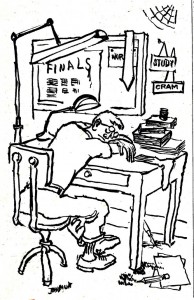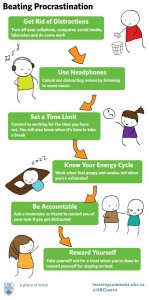Ask most students, and a majority will agree that there is little to no sleeping during Finals week. This is not unique to any major, degree, or institution. It is pretty much accepted that during finals and possibly even the week before that students will not get adequate sleep.
While many can understand why this happens, you may be surprised to discover that this doesn’t need to happen nor is it at all beneficial. From personal experience, I can tell you that the correlation between sleep and grades on exams is often positive. There are some exceptions to this rule of course (like if you take this so seriously that you decide to sleep instead of studying), but if used rationally, this advice can help you do better than you might have done.
How does this work? First of all, if you are like most others who don’t get adequate sleep during testing, you may agree with me that you cannot concentrate as well during the tests as you would if you had slept. In fact, studies have shown that driving without sleep is even more dangerous than driving while inebriated (though I’m not advocating for that either) because of delayed reaction times as well as the risk of falling asleep at the wheel. When you are taking exams that are timed, it is really detrimental to be sleepy because your concentration level is not what it should be. The same questions that you may be able to answer in one/two minutes may take you five minutes.
How about when you have an essay or short answer final. These often require that you hand-write your responses. How many people can write as legibly when they’re half asleep? I know that when I try to take notes or write a paper while asleep, I end up with some gobblygoop or ____________ on the paper. I’ve had professors who say that they won’t grade illegible papers. That can mean an automatic zero!
Of course, another thing you need to be worried about is the coffee or other drinks that you are consuming to allow your body to stay awake an unnatural amount of hours. Caffeinated beverages like Red Bull, Coffee, Five Hour Energy, Coca Cola cause other responses besides keeping you awake. Caffeine is a stimulant drug (in the same class as cocaine). Other effects that you can have when taken in high “dosages” can be anxiety and palpitations. I have seen students fail exams because of nervousness after drinking too much espresso. Also, these drinks act as diuretics causing increase urine production. How are you going to take and or finish an exam if you need to use the restroom multiple times throughout the test?
The good thing about these issues is that they are easily manageable. Make sure to sleep before your exams. While seven hours would be ideal, realistically that might not be possible. Aim for a minimum of six hours of sleep before an exam. If you work a night shift, try to get the night before the exam off if you will not be able to sleep between your shift and the exams. Don’t drink too many caffeinated beverages. Sometimes cold water may be adequate to keep you up without causing adverse effects of caffeine.
I know that you’ll do great, just avoid a crash landing!










